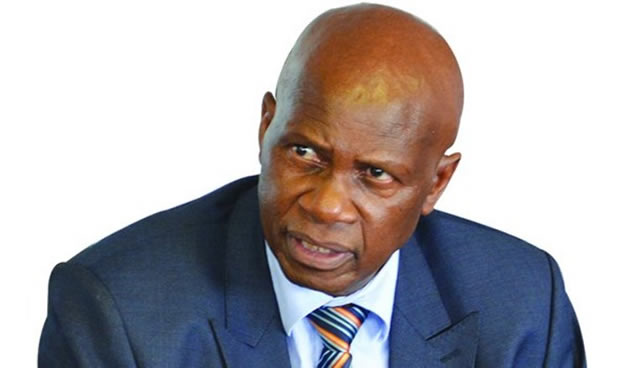Editorial Comment: Chinamasa has his work cut out

FINANCE and Economic Development Minister Patrick Chinamasa delivers the 2016 National Budget Statement to an expectant nation this afternoon.
People across the socioeconomic divide are waiting to hear what he has in store to induce accelerated economic growth, resolve challenges such as the liquidity crisis and reduce recurrent public expenditure to fund other key areas.
Undoubtedly, it is an unenviable task for the minister who has to juggle the little resources being mobilised from a declining revenue base and balance its sharing among the many competing needs, some of which cannot be overlooked.
Already, the Finance ministry has indicated in its 2016 National Budget strategy paper that it is targeting revenue inflows in the order of $3,86 billion, which is about $200 million more than revenue projected.
Minister Chinamasa faces the daunting task of finding the best way to share obviously limited projected revenue among competing needs of health, education, defence, security, agriculture and social protection for the vulnerable.
While he may not avail funding to the ailing manufacturing sector, we expected the minister to pronounce measures to stimulate productivity in the manufacturing sector and to increase local consumption and export earnings.
This comes against the backdrop of significant depreciation of the South African rand, which has made Zimbabwe’s exports to South Africa uncompetitive while driving imports, as they are cheaper and draining out liquidity.
Calls have already been made for Minister Chinamasa to find ways to counter the massive devaluation of the rand and as such we expect him to pronounce policy measures for internal devaluation to enhance local competitiveness.
Efforts to address competitiveness must address issues around ease of doing business, high corporate taxes and the litany of statutory fees constraining viability in key sectors such as the gold and platinum mining industries.
High on the agenda of public expectation will also be civil service restructuring to correct a lop-sided expenditure scenario heavily skewed towards running costs with little left available to fund key infrastructure projects.
The issues have been on the Government agenda for a long time and are a common feature of Zimbabwe’s staff monitored programme being undertaken to re-engage the International Monetary Fund and other global lenders.
Minister Chinamasa is also expected to provide a clear roadmap on parastatal and State enterprise reform, which has become rhetoric while the under-performing entities remain a drag on the fiscus and the economy.
As is the norm, the Budget must spell out measures to boost foreign and domestic confidence to drive investment from the private sector, at time Government has no fiscal latitude to invest in major sectors of the economy.
This is particularly fundamental considering that Zimbabwe uses a basket of foreign currencies, after scrapping the local unit at the height of inflation in 2008 and therefore largely relies on external inflows and private sector for investment.
We, however, noted with concern, from the 2016 Budget strategy paper, that projected growth in revenue is insignificant for a country with obligations as huge as Zimbabwe’s and so plans to increase revenue inflows by taxing the informal sector must be followed through without delay.









Comments